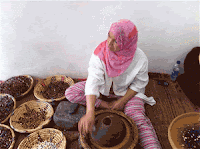 Our December 14, 2010, teleconference with Dr. Mario Roxas--Select Drug-Herb & Drug-Nutrient Interactions--was action packed! Dr. Roxas shared an insightful, personal snapshot of the current state of our society's health followed by a stellar introduction to the complex world of drug-herb and drug-nutrient interactions. We welcome you to download the recording for your personal reference library. You may also want to download a copy of the presentation's accompanying PDF to follow along!
Our December 14, 2010, teleconference with Dr. Mario Roxas--Select Drug-Herb & Drug-Nutrient Interactions--was action packed! Dr. Roxas shared an insightful, personal snapshot of the current state of our society's health followed by a stellar introduction to the complex world of drug-herb and drug-nutrient interactions. We welcome you to download the recording for your personal reference library. You may also want to download a copy of the presentation's accompanying PDF to follow along!Download Select Drug-Herb & Drug-Nutrient Interactions HERE.
For those who were able to attend, we sincerely hope you enjoyed the teleconference. Our teleconferences have limited space and are, therefore, only open to ACHS students and graduates. However, we know there are many of you who would like to attend and to learn more about integrating holistic health and wellness into your everyday life. So, we are very happy to be able to post a recording of Select Drug-Herb & Drug-Nutrient Interactions for your enjoyment.
If there is a specific teleconference topic you would like to hear in the future, please let us know. You can email it to communications@achs.edu or post it as a comment to ACHS Facebook here: http://www.facebook.com/ACHSedu
For a schedule of upcoming ACHS teleconferences, click on Community Wellness classes or use this link: http://www.achs.edu/wellness/community-wellness.aspx?id=6

































